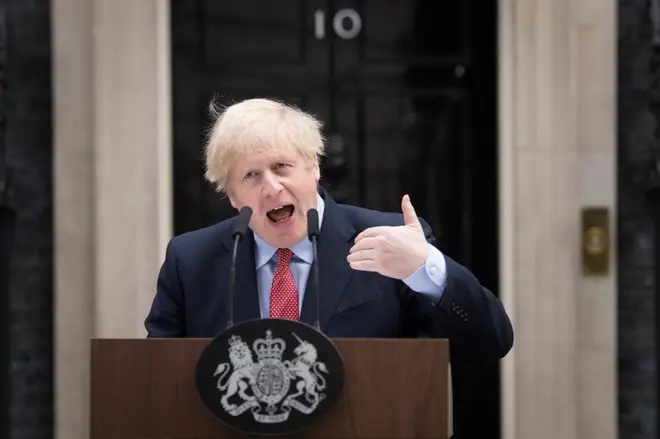
Henry Riley 7pm - 10pm
27 April 2020, 16:06

Can the UK's Covid-19 strategy be considered "successful"? LBC asks the experts
Coronavirus related deaths have tragically surpassed 20,000 - LBC's Shelagh Fogarty asked an expert if Phase One of the battle-plan can be considered a "success" and what could've been done differently.
As coronavirus related deaths exceed 20,000, Shelagh Fogarty asked data journalist John Burn-Murdoch if Phase One of the coronavirus battle-plan can be considered in any way a "success."
This is after chief scientific adviser Sir Patrick Vallance stated six weeks ago that staying below 20,000 deaths would be at the same time "horrible yet a good outcome relatively speaking."
Mr Burn-Murdoch acknowledged that it is tragic so many people have lost their lives, and proffered that "there are some countries in the world where the numbers have been much, much lower than this but there are others where the figures are much much higher". He added that if the UK had no measures in place there would undoubtedly be a higher death toll.
When Sir Patrick Vallance's statement about 20,000 people was made it felt like a "pretty large number" but now we can look back and say 20,000 deaths is a "fairly standard number" for countries in Western Europe, he said.
"At the time Italy, which was very much the epicentre, was still on under 3000 deaths...but we didn't know where Italy was going to top out."
Mr Burn-Murdoch said data suggests the true total of Covid deaths across the UK is "probably far higher" than 20,000 but numbers are "lagging behind" due deaths taking time to be registered, or care homes not attributing coronavirus as a cause of death.

"If we consider that the total number of all people whose death Covid was a contributing factor, there's no doubt we're actually going to end up well above 20,000 and in that sense, 20,000 does feel unrealistic," he said.
Shelagh asked if total UK Covid deaths surged in to the high tens of thousands, would that be due to political decisions?
Mr Burn-Murdoch reiterated we must look at the challenge that was faced in the UK; "there are a lot of factors involved in how any different country fares...which are essentially unrelated to decisions made."
For example, he said, while New Zealand and Australia acted very very early and have kept their numbers low, countries like Sweden who have "taken very little action" haven't had a death toll anywhere near as high as Britain.
Factors can also include where the outbreak in a country first started, meaning it is hard to know how things would have been different if different political actions had been made and at earlier times.
"We know now that the UK has been towards the top end of this death toll but as I say it's hard to know whether it was purely timing of lockdowns that led that to be the case or whether...things had already got on to a pathway where it was going to be difficult to get off that trajectory," he said.